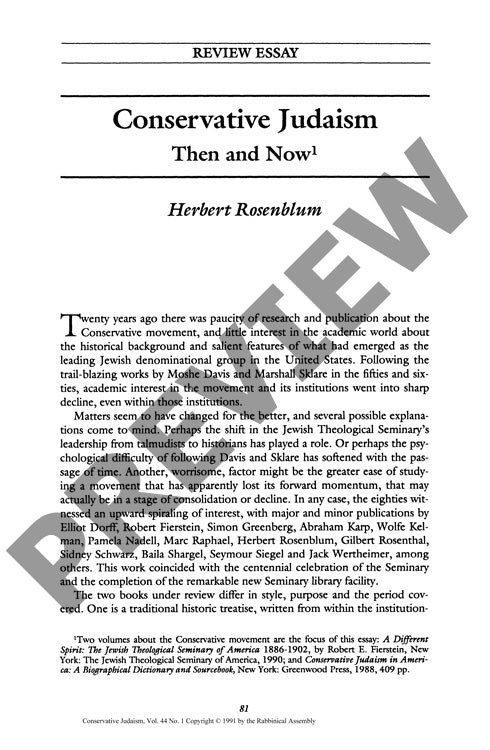Conservative Judaism Then and Now
Couldn't load pickup availability
For decades, Conservative Judaism's complex evolution in America received limited scholarly attention, leaving crucial questions about its philosophical distinctiveness and organizational development unexplored. Two groundbreaking works now illuminate this gap: Robert E. Fierstein's institutional history of the Jewish Theological Seminary's foundational period (1886-1902) and Pamela Nadell's biographical investigation of the movement's leadership. Through extensive archival research, particularly the previously untapped Sabato Morais and Mayer Sulzberger papers, Fierstein reveals a more robust early Seminary than traditionally depicted, establishing stronger connections to the Zacharias Frankel historical school tradition. Nadell takes a different approach, constructing 135 biographical profiles of religious, academic, and organizational leaders to argue that individual contributions, rather than theological or sociological forces, drove Conservative Judaism's success. Together, these works address fundamental questions about the movement's unique identity, adaptability to modern Jewish needs, and institutional effectiveness. While offering qualified affirmative responses to these central issues, both authors provide sophisticated analyses of Conservative Judaism's historical trajectory, present consolidation, and future prospects in American Jewish life.

More Information
-
Physical Description
-
Publication Information
Published 1991
ISBN
-
Publication Credits
Herbert Rosenblum

